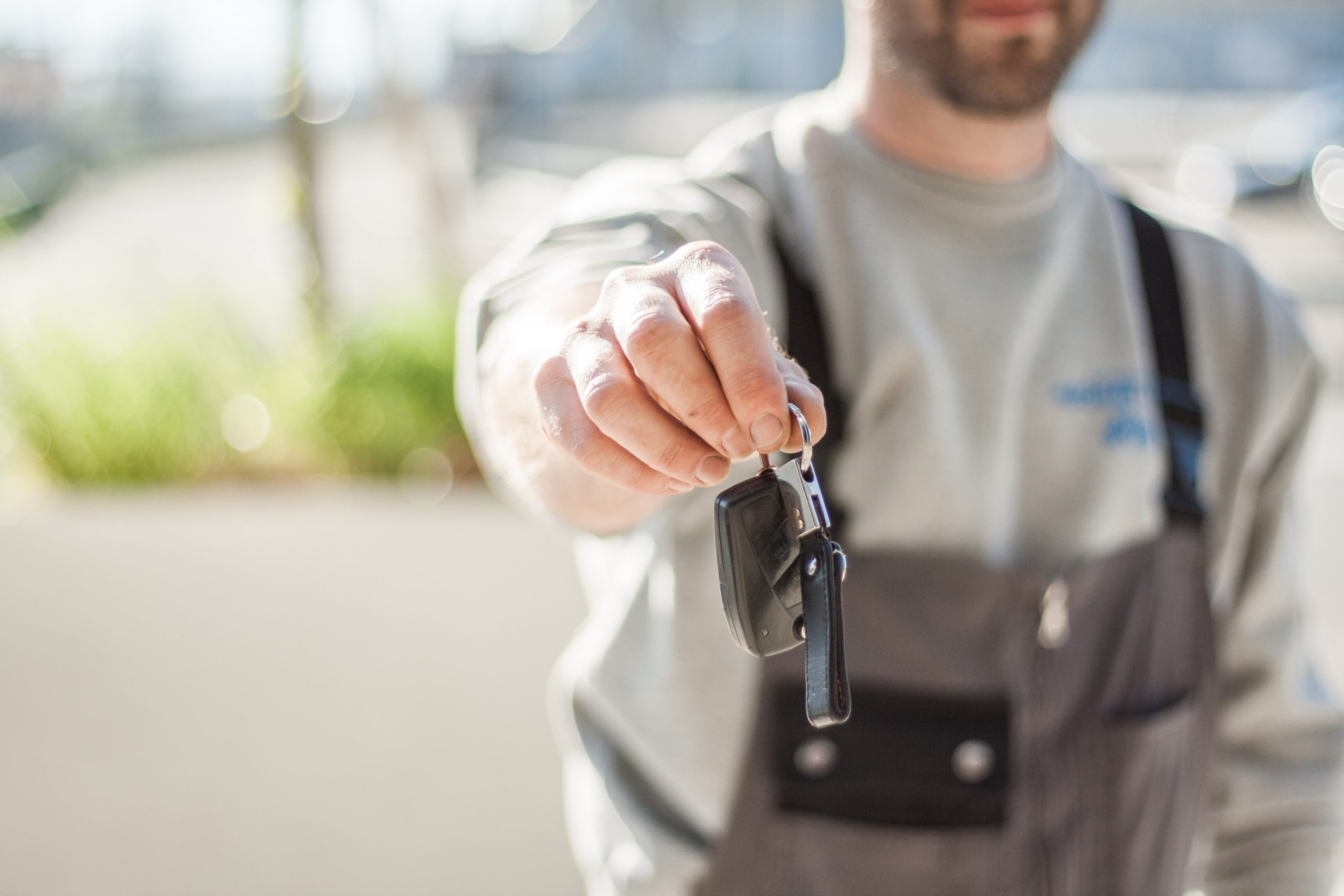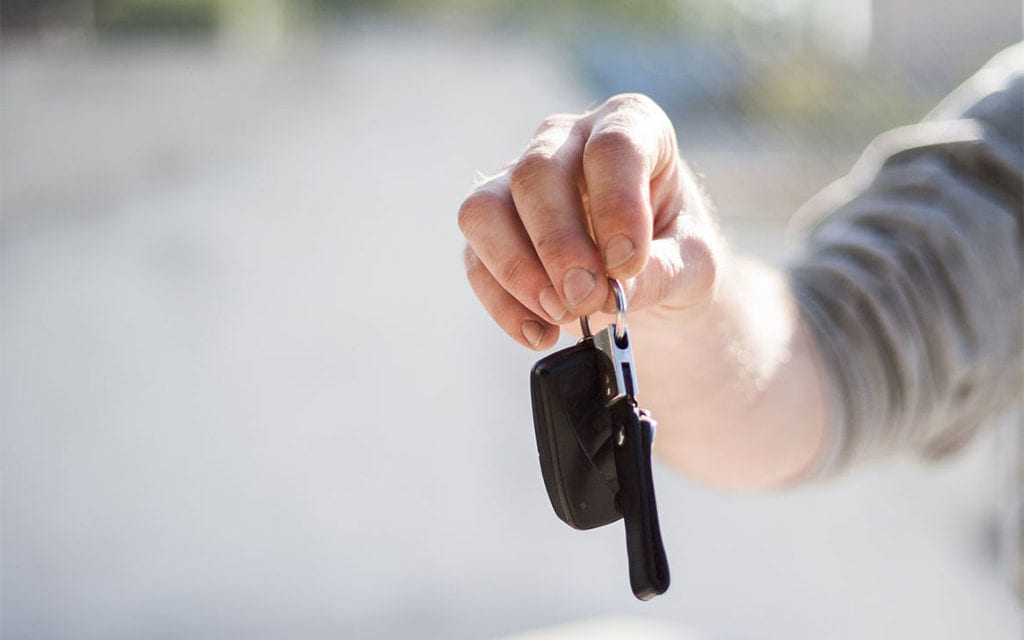IF YOU’VE EXHAUSTED EVERY POSSIBILITY FOR AUTO FINANCING WITHOUT SUCCESS, A BUY HERE PAY HERE (BHPH) DEALER MAY BE YOUR LAST AND BEST RESORT.
It’s sad to say, but most Americans simply do not have the cash in hand to buy a car without a loan. Typically, consumers borrow money to purchase a car through third-party lenders, such as banks, credit unions and carmaker-associated lending companies. Yet, traditional lenders and even bad credit lenders won’t approve everyone. If you find yourself in that situation, try a BHPH dealer.
WHAT IS A BUY HERE PAY HERE DEALER?
BHPH dealers are in the business of selling cars to people who need transportation regardless of the consumer’s credit past. Because the auto loan decision is made by the same BHPH dealer who wants to sell a car, loan approval is all but guaranteed. To a BHPH dealer, a consumer’s credit score doesn’t matter. All a consumer needs for loan approval is a permanent address and a steady job.
BHPH is a much needed service for the person with bad credit and in desperate need of transportation. But offering that service comes with great risk to the dealer.
Granting credit to a person with a low FICO score isn’t done out of the goodness of the BHPH dealer’s heart. Loans granted to consumers with bad credit make money, lots of money. On top of that, BHPH dealers rarely discount their vehicles because BHPH buyers have few other options to purchase transportation. Especially since the majority of BHPH buyers have already been denied credit at many traditional car dealerships.
As an aside, traditional car dealerships can make getting a loan for low credit score buyers even more difficult. Their usual practice is to blast low credit score applications to a dozen or so lenders hoping to find a willing taker. When they receive the application, each lender pulls its own copy of the consumer’s credit report. With every credit pull after the first three, the consumer’s FICO score is reduced by about five points. Figure it out. If a car dealer sends a credit application to twelve lenders, a consumer’s credit score could drop 50 points. At that point, the consumer is worse off than when he/she started.

WHY BUY HERE PAY HERE DEALERSHIPS MAKE SENSE
BHPH dealers recognize that their target customers have poor credit, limited funds or have trouble managing the cash they have. Accordingly, BHPH dealers market their cars to solve those three consumers problems.
BHPH dealers don’t pull credit reports. They lend based on income instead of credit score. They approve loans for people who are stable rather than people with great payment histories.
It makes sense that BHPH dealers require larger down payments than their traditional counterparts. Down money reduces their risk and insures that buyers have some skin in the game. All things considered, the required amount down is not exorbitant.
To make automobile loan payments more affordable for consumers who find budgeting difficult, most BHPH dealers accept weekly and bi-weekly payments rather than the standard monthly payment. The idea behind the weekly payment is for the buyer to stop at the BHPH dealership on the way home from work every payday to make his/her car payment before he spends his money elsewhere. That helps consumers manage his/her money and ensures that the BHPH dealer gets paid.
BUY HERE PAY HERE CARS ARE EXPENSIVE
Because BHPH customers are Credit challenged, BHPH cars are almost always priced above Blue Book value, and are therefore, even more profitable than used cars purchased at traditional dealers. To justify the extra cost, BHPH vehicles tend to be more reliable than comparable automobiles purchased at a typical used car lot.
Vehicle reliability is not simply a customer service. It also protects the BHPH dealer’s investment. BHPH dealers know that their customers are not afraid to walk away from a “mechanically challenged” car. Why not? What does the BHPH customer have to lose if he/she walks? His/her credit is already bad. He/she has nothing to lose.
Consumers need to know that BHPH dealers make as much, if not more profit from financing vehicles than they from the cars themselves. A high-risk borrower can expect double-digit interest rates even in a single digit marketplace.
BHPH dealers rarely lose money on the sale of a car. Even if a customer defaults on a loan, the amount of the down payment is usually the wholesale value of the auto. That way, the BHPH dealer doesn’t lose his initial investment. And if a buyer defaults on a loan, all the BHPH dealer does is repossess the vehicle. Fix it and prep it. Then start the BHPH process all over again.

BUY HERE PAY HERE LOCK OUT DEVICE
When car shopping at a BHPH dealership, always ask if a lockout device is installed in the vehicle. A lock out is a radio or cellular device that will not permit the car to start if the consumer doesn’t make his/her weekly or bi-weekly car payment. The lockout device also provides the dealer with the exact location of the automobile so that the BHPH dealer can send a tow truck to repossess the car upon default. The lockout technology lets the BHPH dealer know exactly where the car is parked. That means no more hiding the vehicle from the Repo Man.
When shopping at a BHPH dealer, there are things should find out. Ask about the BHPH dealer’s late payment policy. Question if there is a grace period before the lockout activates, and if so, how long is it? Find out if the BHPH dealer provides an emergency code to bypass the lockout long enough for you to drive to the dealer to make a cash payment? Before you sign the contract, be sure that it clearly spells out how long the period is between missing the weekly payments and repossession.
Finally, be sure that the BHPH dealer you use reports your payment status to the three major credit bureaus. Get the assurance in writing. BHPH dealers make lots of money from your credit distress. A consumer should use his/her BHPH payment to rebuild his/her credit so that the next car purchase can be through a traditional, more affordable dealer.
The Credit Monkey loves feedback. If you found this post helpful, please leave a comment, share it on social media or send the Monkey an email at [email protected].
This post was updated on November 20, 2019.


Recent Comments